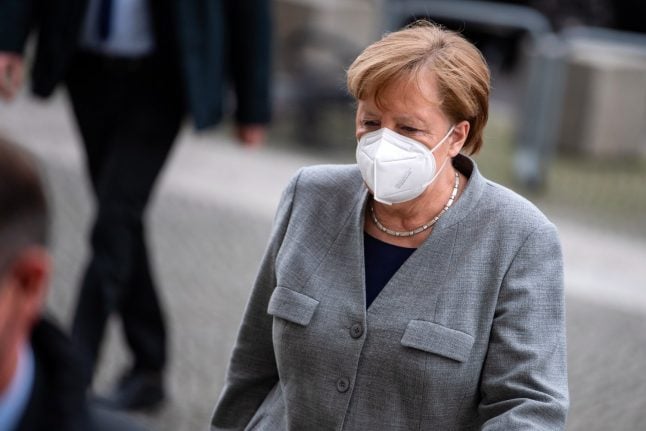At a meeting of senior members of her centre-right CDU party, Merkel said she wanted to bring forward a planned meeting with state premiers to “the coming week”, participants told AFP.
Party members quoted her as saying the virus could only be stopped with “significant additional measures”.
Der Spiegel reported that among the tougher options being considered were border checks, requirements to wear high-quality FFP2 masks in some places and getting more people to work from home.
It came as Germany's total coronavirus cases topped two million on Friday.
The EU's most populous country added another 22,368 new cases over the past 24 hours, Germany's Robert Koch Institute (RKI) health agency said, bringing the total since the start of the pandemic to 2,000,958.
It also reported another 1,113 Covid-19 fatalities, taking the overall death toll up to 44,994.
Merkel also voiced concern about the virus strain that recently emerged in Britain and is considered more contagious, saying people urgently need to reduce their social contacts.
More than 25,000 new daily coronavirus cases were reported, the Robert Koch Institute said, and hospital beds are filling up.
Germany has continued to see high infection rates despite being in some form of shutdown since the beginning of November.
Merkel and the leaders of Germany's 16 states were originally scheduled to hold their next meeting on January 25th to take stock of the current shutdown measures.
READ ALSO: 'Please stay at home': RKI boss issues urgent appeal to German residents
Regional poll delayed
The worsening pandemic on Thursday prompted German parties to agree to postpone a regional election in the eastern state of Thuringia, moving it from April 25th to September 26th.
Thuringia is a current hotspot in the pandemic, recording 310 new cases per 100,000 people over the last seven days, compared with the national average of just over 150, according to the RKI.
The regional vote will now coincide with Germany's general election, the first in over 15 years that won't feature Merkel, who is bowing out of politics.
The Thuringian election was one of the first state polls scheduled for 2021, and was going to be closely watched as a test of the national mood heading into the post-Merkel era.



 Please whitelist us to continue reading.
Please whitelist us to continue reading.
Yeh…Or how about we try a different approach as the lockdown is obviously not the right one
Yeh…Or how about we try a different approach as the lockdown is obviously not the right one
I agree with a tougher lockdown! It will be costly for the country to support those who must be home, but a very tight lockdown will work, and it won’t take as long to bring numbers down as this half hearted attempt at a lockdown.
They haven’t worked so far, why would that change now?
Lock down hard now to allow lighter restrictions in summer.
Of course lockdowns are working. Germany, with its lax restrictions, still has significantly fewer deaths per capita from covid that the US, where half of the country doesn’t care at all.
2 million “cases” out of a population of 83.02 million. How many of those cases are sick. Its the same fearmongering we get from the MSM. No actual breakdown of the “cases.